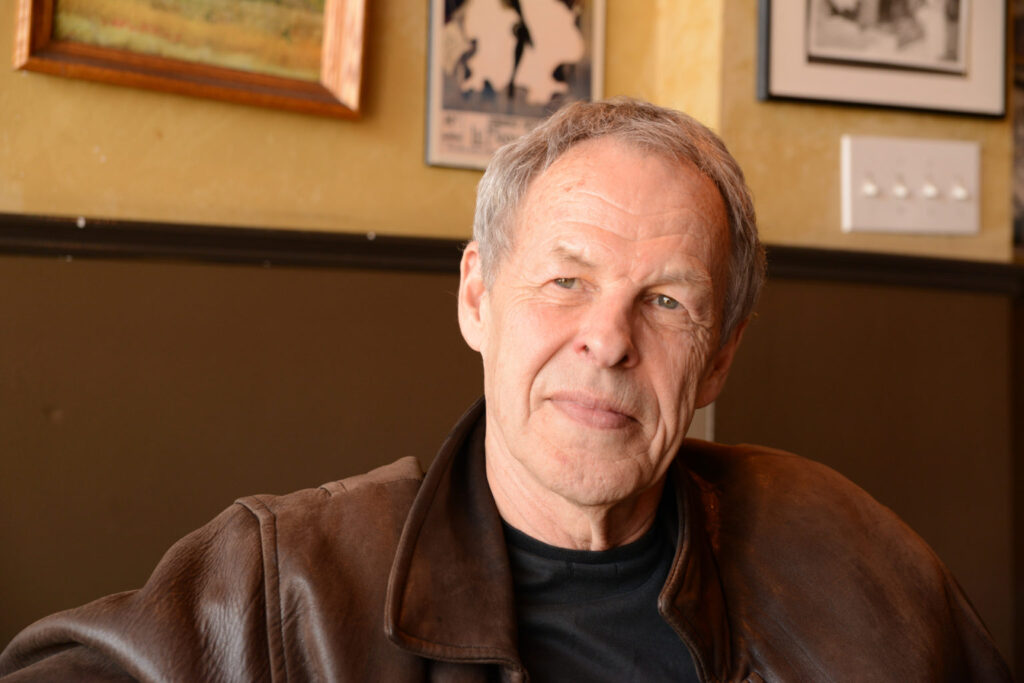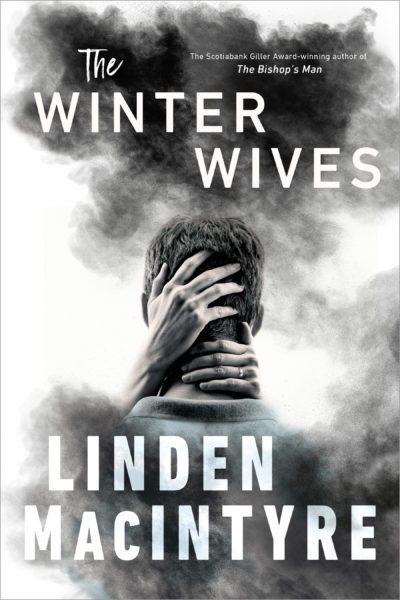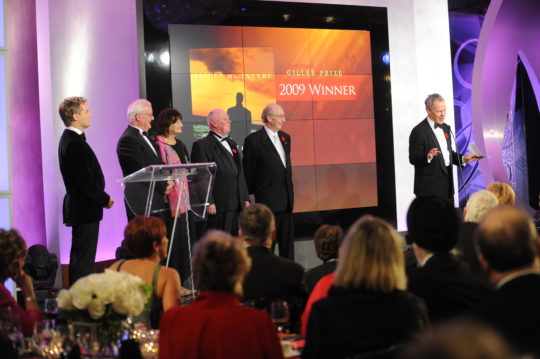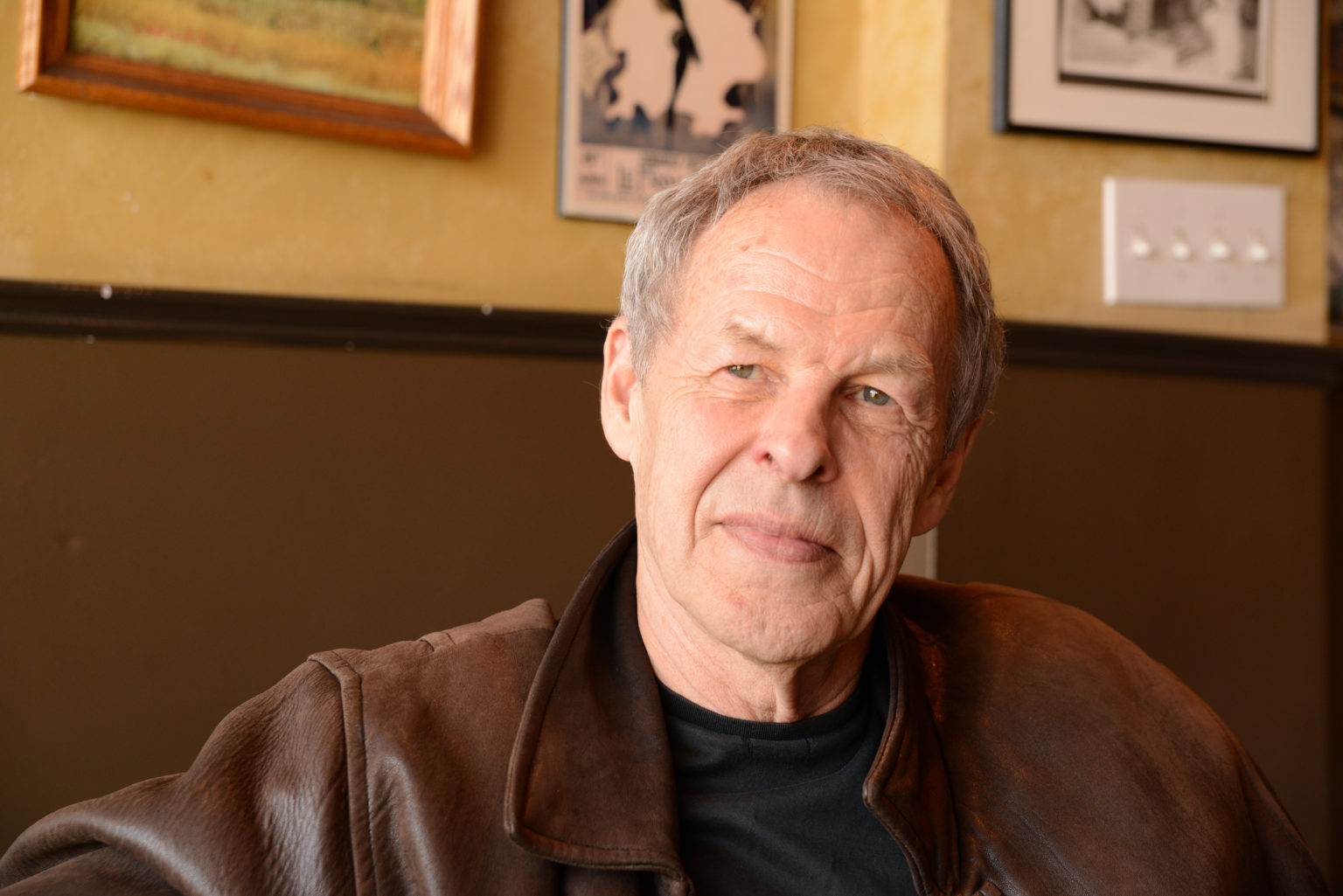
In Conversation with Linden MacIntyre
It begins with a simple weekend of golf for two old friends. One of them is a former football hero who is worldly and financially successful. The other man is quieter and lame from a childhood injury. He’s smart and has never strayed from his small Nova Scotian community. During a night spent drinking, the fault lines between them slowly emerge…the biggest being Peggy, the woman one would marry, but that both men loved.
The Winter Wives is a thrilling psychological drama and a case study on the human condition from a man who’s spent his life studying it. Linden MacIntyre is a bestselling novelist and non-fiction writer. His second book, The Bishop’s Man, was awarded the Giller Prize, among other honours. A distinguished journalist with 50 years in the field, MacIntyre spent 24 of them as co-host of the CBC’s The Fifth Estate.
We sat down with the acclaimed writer to discuss the state of journalism, distinguishing fact from fiction, and The Winter Wives.

The Collection: How would you describe the current state of journalism?
Linden MacIntyre: It’s pretty chaotic right now. But, the long-term peril of the present situation is the difficulty that smart, young people are having trouble getting a foothold in the business. We’re going through a period where the delivery systems are being completely overhauled and replaced. You still have this community that wants to do journalism, that wants to tell stories that are important to public life, and you still have the mass of people that need that. But in between, you have a kind of technological, systematic breakdown and rebirth, and in all this confusion, a whole lot of people are falling through the cracks. And that’s bad, because in my experience there’s never been such a highly qualified, highly motivated, highly principled community of people who want to do that work, and who are prepared to sacrifice their personal lives for the sake of this mission. The fact that these people are having so much trouble finding a home in this important profession is perilous, I think, to the future.
TC: Media companies seem to have an agenda. Shouldn’t they be a little more unbiased?
LM: Companies have an agenda of survival. They are prepared to do anything to survive and will play to the lowest common denominator. They will embrace the most marginal, inflammatory issues, and run with them to excite a readership or a viewership to survive financially.
TC: Why do you think the public has such a difficult time distinguishing fact from fiction?
LM: Because they have been brainwashed. A large part of the population has been brainwashed in order to control the way people react, the way people vote, the way people buy. And they’ve been brainwashed into thinking that there is no such a thing as objectivity. And that there is no such thing as truth. Truth is whatever some interest group wants it to sound like or look like. So, people are confused by this. There’s such a variety of sources…everybody who has a computer can have a blog and everybody who has an axe to grind can build a platform. In the old days, you had your Liberal paper, your Tory paper, your socialist paper, and people would shop where they felt more intellectually and politically comfortable. Now, there’s a supermarket full of crazy fringe choices, and I think deep in the soul of everybody, there are crazy fringe thoughts. Most of us, early in life, recognized to keep them to ourselves. But now there’s a place to go with it [and] there are 10,000 people lined up saying “I like your crazy, fringe thoughts,” and suddenly you don’t feel crazy or fringe anymore. You’re suddenly part of a movement, and suddenly a politician is saying we better take that movement seriously or we’re going to be out of a job, and suddenly you have a newspaper proprietor saying if we don’t take that crowd seriously, we’re going to start losing money. That makes it very confusing for people.
TC: You’ve been critical of the CBC. What’s wrong with our public broadcaster?
LM: The CBC has a great deal of difficulty finding the right people to run the place, and to exercise any kind of consistent judgment about what goes out. Once upon a time, the CBC was a cultural leader in this country. It isn’t anymore. Once upon a time, it was brave enough to put stuff on television or the radio that pushed boundaries and attracted big new audiences. There is a reluctance to take those chances anymore. [Instead], there’s this thinking that the latest gimmick, the latest fad is going to grab an audience. Audiences, I think, want to be surprised. Audiences don’t want to be condescended to. They want to be stimulated and to learn.
TC: In your work on The Fifth Estate, you’ve said that it’s possible to deliver “the murder of the week,” and at the same time leave people thinking about humanity. Is that also your objective when writing fiction?
LM: Of course. The human experience is down and dirty most of the time, and that’s where journalism finds its relevance and its authenticity. One of my great frustrations with the media is its easy acceptance of the fact that people do bad things because they’re bad; people do good things because they’re great, they’re wonderful. No…the reasons why anybody does anything, whether it’s good or bad, are so complicated and so deep. This is the kind of conversation that I’m interested in.

TC: Your new book, The Winter Wives, is a bit of a study in human nature. What can readers expect?
LM: It’s a story about a fellow who grows up with a physical disability, and as a consequence of the physical disability, his whole educational process and his socializations are altered. He’s homeschooled mostly. He’s in the hospital a lot. He doesn’t really get to relate with many people outside his parents, he’s got no siblings. And then at a certain point, he has to go to school. He’s a teenager now, he’s suddenly dropped into a social situation, and he’s not ready for it. So, he evolves in this way…in good ways and in bad.
TC: The protagonist, Byron, has a recollection of events that are always fuzzy where it relates to his mother or Peggy, but his moments with Allan are vivid and detailed. Why is he more present in his relationship with another man than with the women in his life?
LM: I think in many cases, men have an easier time sustaining friendships with men. In this particular case, he was a bit confused because when he got dropped into a social situation, he started off with a very strong friendship with Peggy. Peggy happened to be the popular girl. She was the ‘it’ girl in high school, and Peggy was interested in him, and he was interested in her, but because of the way he grew up, he had no sense of how you move that relationship beyond the kind of infantile stage. Then, he becomes friends with Allan, who was in many ways the opposite of him. Allan is the campus football star, he’s huge. Byron is a little guy with a limp, and for some strange reason, Allan sees something that he likes in Byron. They form this friendship that survives long periods of time and great spaces of distance.
TC: Age, regret, and the recognition of the passage of time are prominent themes in the book. It is said that people write what they know. Are these things that you find yourself concerned with?
LM: I’ve always been concerned with them. I grew up a little bit like Byron did. Not because I’m physically handicapped, but I grew up in a little place where there were very few kids my age, hardly any. Later, when I was a teenager, I made a couple of great friends. I actually made a friend a lot like Allan…a big strapping athlete who went on to an interesting lifestyle. But ageing is something that I think we all reflect on once we get past our twenties. It used to be a traumatic event to turn 30. Then at some point, 50 became the new 40, so it all changes, but the reflection on age and relationships never really moves much from the time you become conscious of these things as important. I don’t intend for the book to be a vehicle for reflection on growing old, or on being handicapped somehow, or facing the limits of your mortality, but these things come up automatically. If you’re going to look at people’s lives and people’s relationships, you will eventually have to wade through all this stuff. So, these are things that I can’t push off the table when I’m thinking about telling the story.
You know, I’ve covered murderers, but when I was dealing with the murder or the murderer, I was never able to push aside the question of who is he? Where did he come from? If you have the privilege in our culture of being able to tell a story that’s rooted in reality, I think you have an obligation to go deep into it and to find out the ‘why’ of things. Who is this person, really, that you’re dealing with? And then take him apart as much as you can.
______________
Linden MacIntyre is a Giller Prize winning author and award-winning journalist. His latest book, The Winter Wives is published by Penguin Random House Canada and is now available for sale.
This interview was originally shared in the Summer 2021 edition of The Collection.

